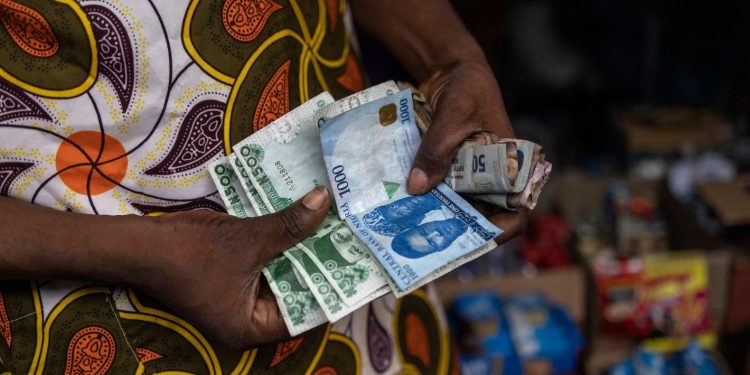Nigeria has seen the sharpest decline in cash transactions over the past decade, surpassing six other cash-heavy economies, according to a report by global payment processing company Worldpay.
Between 2014 and 2024, cash usage in Nigeria dropped by 59%, the steepest decline among the seven major economies analyzed. The Philippines followed with a 43% decline, while Indonesia (44%), Mexico (41%), Japan (31%), Germany (24%), and Colombia (22%) also recorded reductions.
This is as a result of electronic payments hitting record highs, driven by increased partnerships between banks and fintech companies. The report—which studied 40 markets representing 88% of global GDP—projects that cash transactions in Nigeria will drop further to 32% by 2030 as digital payments continue to gain traction.
The rapid adoption of digital payments accelerated in 2023, partly due to the Central Bank of Nigeria’s naira redesign policy aimed at curbing cash hoarding and money laundering. However, the policy triggered a severe cash shortage, causing a 29.2% drop in currency circulation to ₦982.1 billion by February 2023—the lowest level since 2008.
As traditional banks struggled to handle the surge in online transactions, fintech platforms like OPay and PalmPay filled the gap, offering reliable alternatives for money transfers and bill payments. This positioned them as key players in Nigeria’s evolving digital economy.
“Nigerians now have an increasing appetite for non-cash transactions,” said Uchenna Uzo, a professor of marketing at Lagos Business School.
Data from the Nigeria Inter-Bank Settlement System (NIBSS) shows that electronic transactions grew 16-fold between 2018 and 2024, soaring from 793 million to 11.3 billion transactions. Mobile devices have played a central role in this transformation, making digital payments more accessible.
While Nigeria remains a cash-heavy economy, the share of cash transactions has more than halved from 91% in 2019. The financial inclusion rate also improved, rising from 56% in 2020 to 64% in 2023, according to Enhancing Financial Innovation & Access (EFInA). The Central Bank of Nigeria projects this figure will reach 80% by 2026.
Analysts at Euromonitor International noted that ongoing innovations are streamlining payment processes, reducing dependence on cash, and improving financial transaction efficiency.
With fintech partnerships and digital advancements reshaping its financial landscape, Nigeria is positioning itself as a leader in Africa’s digital finance revolution. If the current trend continues, the country won’t just lead in financial inclusion—it could set the standard for the future of money across the continent.
























































